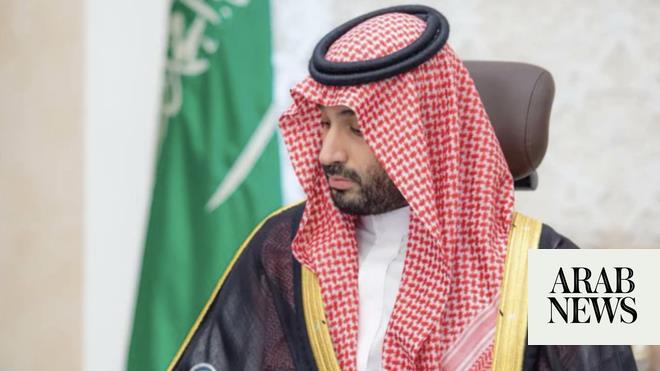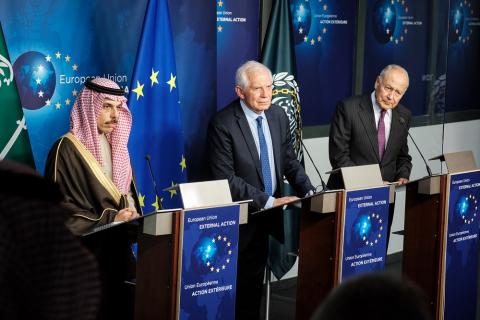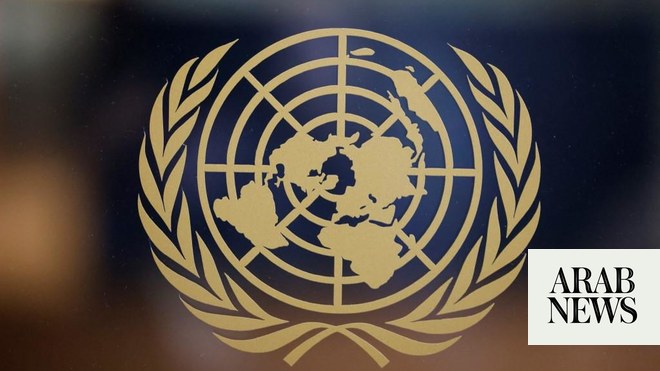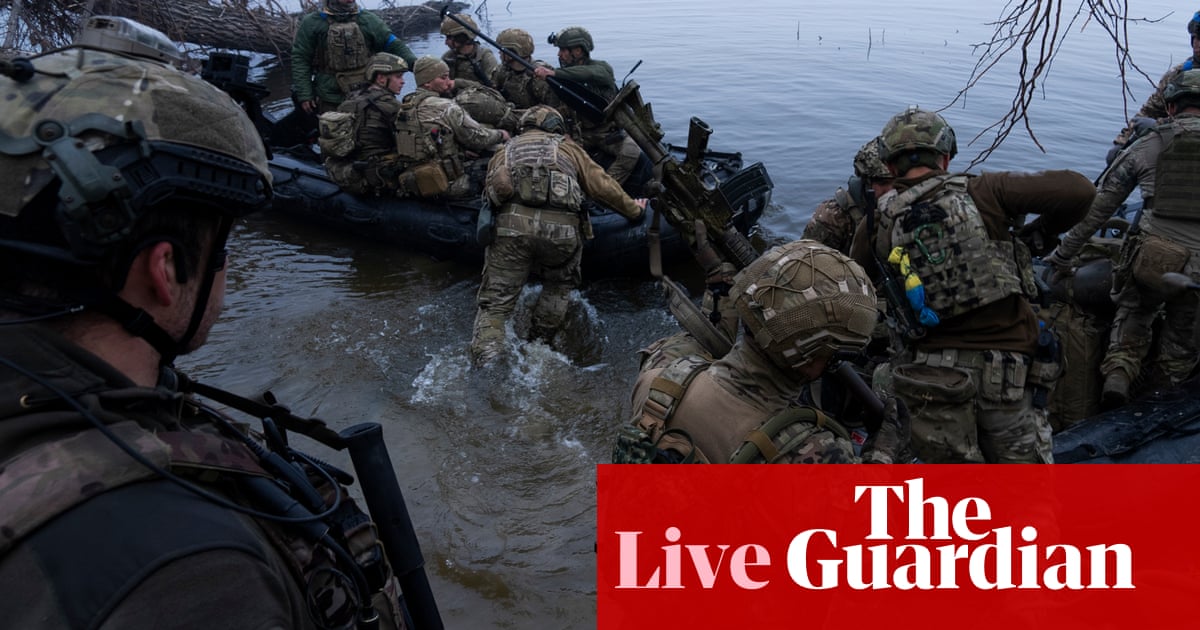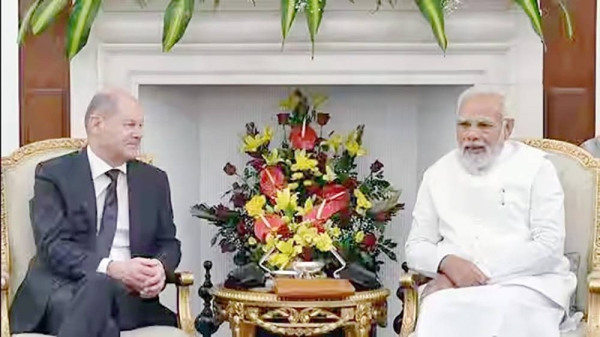
NEW DELHI — India has insisted on resolving the Ukraine crisis through dialogue and diplomacy and stands ready to contribute to any peace process, Modi said on Saturday after talks with visiting German Chancellor Olaf Scholz.
The Ukraine war entered its second year hours before Scholz arrived in New Delhi on Saturday, who described the conflict as a “major catastrophe” as it violated the principle of not changing borders through the use of violence.
Scholz said at a joint media interaction with Modi that it is important for countries to state very clearly where they stand on the war at the United Nations.
German officials had said the Ukraine crisis, broadening trade and investment and countering climate change will be high on the agenda for Scholz’s two-day visit.
The Russian invasion of Ukraine has also cast a shadow on discussions at the G20 finance ministers’ meeting in Bengaluru, and German Finance Minister Christian Lindner said it will be unacceptable for his country if a proposed communique dilutes the denunciation of Russia’s actions.
Modi noted that the effects of the COVID-19 pandemic and the Ukraine conflict have negatively impacted developing countries, and called for joint efforts to address these problems. “We are stressing on this even during India’s presidency of the G20,” he said in Hindi at the joint media interaction.
“Since the beginning of the developments in Ukraine, India has insisted on resolving this dispute through dialogue and diplomacy. India is ready to contribute to any peace process,” Modi said.
Scholz pointed to immense losses in Ukraine, including the destruction of infrastructure and energy grids, and referred to the war as a “major catastrophe”.
He said, “But above all, it is a disaster, a catastrophe because we know this war violates a fundamental principle to which we had all been agreed for such a long time, and that is that you do not change borders through the use of violence.”
While calling for upholding international law, Scholz added: “Thus, it is important that in the United Nations too, we time and again state very clearly where we stand on this subject matter.”
Scholz also noted that India held the G20 presidency at a “difficult point in time” and said he is confident “India will fully comply with what needs to be done in that regard.”
India has refrained from public criticism of the Russian invasion, though Modi told Russian President Vladimir Putin at a meeting last September that “today’s era is not of war.”
India has also abstained on almost all Ukraine-related resolutions at UN bodies, including the General Assembly’s adoption of a resolution this week that asked Russia to immediately withdraw its troops from Ukraine.
Modi said security and defense cooperation could become an important pillar of the India-Germany strategic partnership, and there is active cooperation between the two sides to fight terrorism and separatism.
“Both countries also agree that concerted action is necessary to end cross-border terrorism,” he said.
He also called for the reform of multilateral institutions so that they reflect contemporary global realities. In this context, he pointed to the work being done by India and Germany within G4 to reform the UN Security Council.
Modi called on Germany, India’s largest trade partner in Europe, to take advantage of opportunities opened up by the “Make in India” and “Self-reliant India” initiatives. The migration and mobility partnership agreement signed by the two sides last December will further deepen the relationship, he said.
“The strong ties between India and Germany are based on shared democratic values of each other’s interests,” Modi said. He stated that India’s Make in India campaign will provide new opportunities in all sectors.
Scholz too held up the migration pact as a model agreement for what can be achieved at the global level, and said: “Many skilled workers and qualified personnel from India have seized the opportunity.”
The agreement will help Germany address challenges in key areas such as research and development, IT and software with skilled personnel from India, he said.
He noted that 1,800 German companies active in India have created tens of thousands of jobs and said he expects the number to go up massively.
Germany is also keen on deepening trade relations between the European Union (EU) and India and wants negotiations on free trade and investment protection agreements to be speedily concluded. “I personally will make sure that this does not drag on,” he said.
Scholz said fighting climate change — “the central topic for the future of mankind” — also figured in his talks with Modi that the two sides need to expand cooperation under their green and sustainable development partnership in areas such as solar, power, biomass and green hydrogen.
On his part, Scholz hailed the massive change in India. “A lot has changed since I visited India last time. India is indeed developing. I and PM Modi have similar ideas. We have been cooperative; we have been discussing matters. I am pleased that India has the presidency of G20 this year,” Scholz said.
The progress made in the 6th Inter-Governmental Consultation held in May last year was reviewed and discussed ways to cement defense and economic cooperation.
There are reports of a possible finalizing of talks to purchase six submarines from Germany worth $5.2 billion.
The German Chancellor will head to Bengaluru city in south India to participate in a program and will leave the country in the evening Sunday. — Agencies




